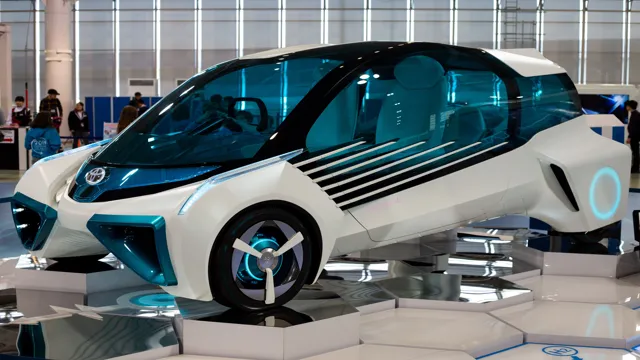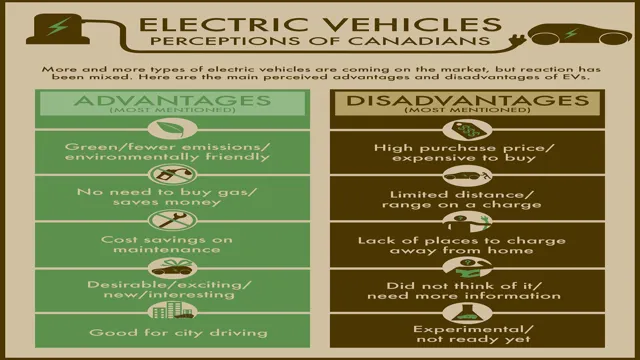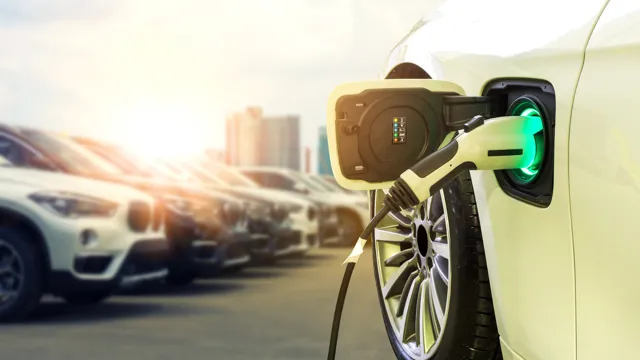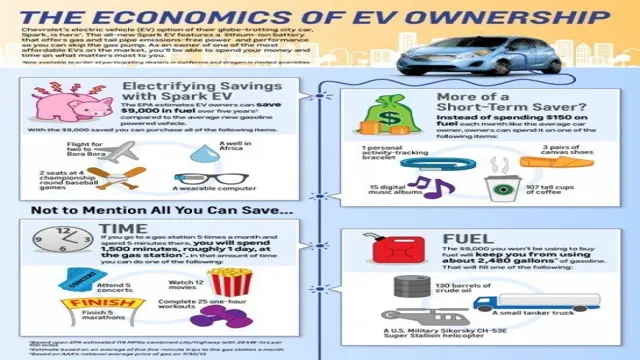Going Green: 10 Compelling Advantages of Electric Cars over Gasoline Vehicles
Electric vs Gas Cars – the debate that never seems to fade away, with many individuals still undecided on which vehicle is better for them. It’s no surprise that the road to a sustainable future involves saying goodbye to the gas guzzlers that have long defined our daily commutes. Electric cars have come a long way over the years, bridging the gap with gas cars in terms of performance, range, and affordability.
While both cars serve the purpose of getting you from point A to point B, each has its benefits and drawbacks. In this blog, we’ll explore the differences between electric and gas cars, weighing up the advantages and disadvantages of each, to help you make an informed decision when purchasing your next vehicle. So, buckle up folks, we’re headed for a showdown!
Environmental Impact
When it comes to the environmental impact, electric cars are undeniably a better choice than gas-powered ones. Electric vehicles produce zero emissions, making them a much greener transportation option. On the other hand, traditional vehicles release a significant amount of harmful pollutants into the air, which contributes to air pollution and health issues.
By using electric cars, we can significantly reduce our carbon footprint and help to preserve the environment for future generations. Furthermore, electric cars are more energy-efficient than their gas-powered counterparts, meaning they require less energy to travel the same distance. This means electric vehicles can help us reduce our overall energy consumption while improving air quality.
So, if you’re looking for a cleaner and more sustainable way to travel, an electric car is an excellent choice.
CO2 Emissions
CO2 emissions are a significant contributor to the environmental impact of human activities. Every time we burn fossil fuels – whether it’s coal, oil, or gas – we release carbon dioxide into the atmosphere. As this CO2 builds up, it traps heat and contributes to the greenhouse effect that’s heating up our planet.
While it’s impossible to completely eliminate CO2 emissions, there are steps we can take to reduce them and mitigate their impact on the environment. For example, we can switch to renewable energy sources like wind and solar power, which don’t emit CO We can also make our homes more energy-efficient, reduce our use of single-use plastics, and make more conscious choices when it comes to transportation.
While it may not seem like much on an individual level, every little bit helps when it comes to reducing CO2 emissions and protecting the environment for future generations.
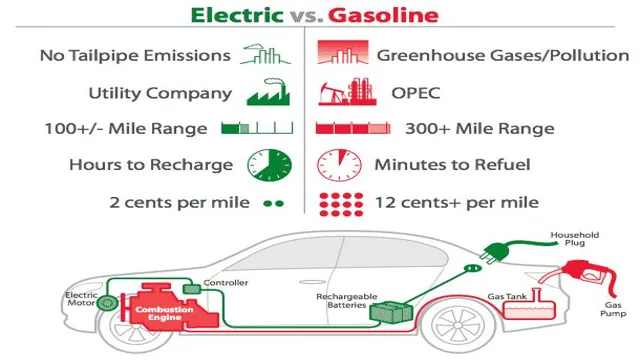
Air Pollution
Air pollution is an increasingly pressing issue that has a significant impact on the environment. The implications of air pollution are widespread and complex, affecting both humans and wildlife alike. The release of harmful pollutants into the air results in a range of health issues, including respiratory problems, allergies, and even cancer.
Additionally, it can cause ecosystem imbalances, which can lead to the destruction of habitats, disruptions of food chains, and decreased biodiversity. The effects of air pollution are particularly pronounced in urban areas, where fossil fuel emissions from transportation, power generation, and industrial activities contribute significantly to the problem. By taking steps to reduce our reliance on these pollutants and transitioning to cleaner sources of energy, we can help mitigate the effects of air pollution and protect our environment for future generations to come.
As we all know, “prevention is better than cure,” so it’s high time we take action and do our part in reducing air pollution.
Cost Savings
When it comes to comparing the benefits of electric cars versus gas, one of the most significant advantages of electric cars is the cost savings they provide. Electric cars are significantly cheaper to operate than their gas counterparts. Electric cars don’t require expensive gas or oil changes, and they usually require less maintenance overall.
Additionally, as electric cars rely on a battery for power, the cost of charging an electric car is usually less than the cost of filling a gas tank. Furthermore, the prices of electric cars are dropping and becoming more affordable as technology improves and more manufacturers enter the electric car market. So, when considering the overall cost of ownership, electric cars provide a more economical option, especially as gas prices continue to fluctuate.
Fuel Costs
As fuel costs continue to rise, finding ways to reduce expenses is a top priority for many consumers. Luckily, there are several cost-saving strategies that can help save money on fuel. One approach is to use fuel-efficient vehicles or upgrade to a hybrid or electric car.
Another option could be to carpool or use public transportation. Additionally, regularly maintaining and servicing your vehicle, ensuring tires are properly inflated, and avoiding aggressive driving can help increase fuel efficiency. Making these simple changes can help you save money on fuel costs over time.
By being mindful of your fuel usage and taking proactive steps to reduce expenses, you can put more money back into your pocket and enjoy the benefits of a more affordable fuel budget.
Maintenance Costs
As a business owner, one of the most important considerations you’ll have is the cost of maintaining your equipment. However, by making smart decisions, you can save a considerable amount of money. Regularly servicing your equipment is key to its longevity, and can help prevent more significant and costly repairs in the future.
Additionally, investing in high-quality equipment that is designed to last can also save you money in the long run. Cheaper equipment may seem like a good deal at the time, but you’ll likely end up spending more in maintenance and repairs than if you had invested in higher quality equipment upfront. By prioritizing maintenance and investing in quality equipment, you can save significant costs over time.
Tax Incentives
One major advantage of utilizing tax incentives is the potential for significant cost savings. These incentives can come in various forms such as tax credits, deductions, and exclusions, and can ultimately reduce an individual or business’s tax liability. For instance, if a company invests in renewable energy sources, they may be eligible for tax credits or deductions, which can translate into significant cost savings over time.
Small businesses can also take advantage of incentives such as the Work Opportunity Tax Credit, which provides a tax benefit to employers who hire individuals from certain targeted groups, such as those who have been unemployed for an extended period or veterans. By utilizing tax incentives, individuals and businesses can reduce their tax burden, freeing up capital for other investments and expenses. Overall, taking advantage of these incentives can be an essential strategy for both individuals and businesses looking to save money and invest in growth.
Performance
When it comes to comparing electric cars to gas-powered vehicles, one of the most significant advantages of electric cars is their impressive performance. Electric cars are incredibly responsive due to their instant torque, meaning that they can accelerate from a standstill much faster than gas-powered vehicles. Furthermore, electric motors operate much more efficiently than combustion engines, resulting in a smoother and quieter ride.
Lastly, electric cars have been shown to have a lower center of gravity, increasing their stability and handling in difficult driving conditions. Overall, electric cars offer a superior driving experience, with quicker acceleration, smoother operation, and better handling, making them an excellent choice for car enthusiasts who prioritize performance.
Acceleration
Acceleration is one of the most important performance aspects that every car enthusiast should be familiar with. It refers to the speed at which a vehicle can increase its velocity, and it can make a huge difference in the driving experience. The faster the acceleration, the more thrilling the ride, and the quicker the car can reach its maximum speed.
There are several factors that affect a car’s acceleration, including its engine power, transmission type, weight, and aerodynamics. A lighter vehicle with a powerful engine and a good transmission can achieve faster acceleration than a heavier vehicle with a less powerful engine and a poor transmission. When it comes to acceleration, it’s not just about speed, but also about the ability to respond quickly in emergency situations on the road.
The ability to accelerate quickly can mean the difference between avoiding a collision and getting into one. It’s essential to choose a car that has good acceleration capabilities to ensure a safe and enjoyable driving experience.
Efficiency
Efficiency is key when it comes to improving performance. Whether it be in business or in personal life, being efficient can lead to better results. One effective way to improve efficiency is by setting clear goals and prioritizing tasks.
By doing so, you can better manage your time and focus on what is important. It is also helpful to eliminate distractions and streamline processes. This can include automating repetitive tasks and delegating responsibilities when possible.
When you are efficient, you are able to accomplish more in a shorter amount of time. This not only leads to higher productivity, but it also allows for more time to focus on personal growth and development. By striving for efficiency, you can achieve greater success in all aspects of your life.
Infrastructure
When considering the choice between purchasing an electric car or a gas-powered car, the benefits of electric cars versus gas are clear. One of the most significant benefits of electric cars is their positive impact on the environment, emitting no greenhouse gases and causing less air pollution. Additionally, electric cars are more efficient and less expensive to operate than gas-powered cars, as the cost of electricity is typically lower than the cost of gasoline.
Moreover, electric cars require less maintenance and have fewer parts to repair or replace than gas-powered cars, resulting in lower long-term costs. However, one of the potential drawbacks of owning an electric car is the lack of infrastructure for charging, which can cause range anxiety for drivers. As the infrastructure continues to grow, with more EV charging stations being installed, this inconvenience will become less prevalent.
Ultimately, electric cars offer many benefits over gas-powered cars, and their popularity will continue to rise as more people realize the long-term advantages they can provide.
Conclusion
In conclusion, the benefits of electric cars versus gas are clear. With lower emissions, reduced carbon footprints, and a quieter, smoother ride, it’s no wonder that electric cars are becoming increasingly popular. Plus, with better fuel efficiency and easier maintenance, you’ll be able to save money while helping to protect the environment.
So go ahead, make the switch to electric and enjoy a more sustainable and enjoyable ride!”
FAQs
What are the advantages of electric cars over gas cars?
Electric cars have lower fuel costs, emit less greenhouse gas, require less maintenance, and offer a quieter and smoother ride than gas cars.
Are electric cars more expensive than gas cars?
While electric cars can have a higher upfront cost, they can offer lower long-term costs due to lower fuel and maintenance costs. Additionally, tax incentives and rebates can help offset the initial cost.
Can electric cars travel as far as gas cars?
While some electric cars have a shorter range than gas cars, newer models can travel up to 400 miles on a single charge. Additionally, the growing network of charging stations and improved battery technology is making long-distance travel easier for electric car owners.
Are electric cars better for the environment than gas cars?
Electric cars emit less greenhouse gas than gas cars, making them better for the environment. Additionally, the production of electric cars is also becoming more sustainable, with companies using recycled materials and renewable energy in the manufacturing process.
